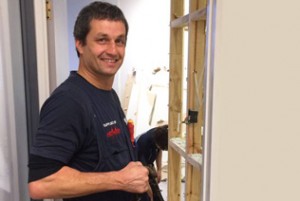Blackler Smith & Co began after Ben Blackler and Blair Smith moved out of what became a large international accountancy group. We wanted to help the same types of people and provide the same types of services, but in our own distinct way.
Thank you to everyone that has been in touch with us since we opened in February.We’ve been really humbled and we really appreciate your loyalty.
Our Aims Are Simple, to:
• Focus on people and families who have their own business.
• Get to know our clients really well and have some fun along the way.
• Offer the best advice and focus on your plans and ambitions.
• Offer continuity of people you’re dealing with – we know that constant change is frustrating for you.
• Have great offices that are nice to visit, are easy to find and get a park.
• Be completely professional but have a relaxed, approachable style.
The Won’ts
Here’s what we won’t do:
• We won’t tell you what to do.
• We won’t dictate when to supply your year-end information and we won’t tell you what accounting package you need to use.
• You’re in the driver’s seat with us. We will, however, offer you suggestions to save you time, remove stresses, make you more money and to achieve your potential.
• And we won’t be changing our name.
Our Clients
To highlight the types of work we do, this may be best illustrated by some recent examples:
• We met with an owner seeking to take their business to a whole new level. We first got clarity on their strategy (market positioning, target market, strengths, weaknesses, opportunities and threats) and the functions of their business (responsibility areas). On top of that we bring focus on the business’s monthly results and suggest areas for ongoing improvement.
• We helped three different parties buy their first businesses. We talked through each person’s ambitions, assessed whether they’re onto a good thing by valuing the business and discussing the business’s potential and risks, helped them borrow money from the bank, set up the best ownership structure for the business and supported the transition into the new business.
• For the partners of a business, we met and mapped out a change in a company’s ownership to better protect assets from business and personal risks and saved a lot of tax in the process.
• We helped a number of our clients sell their long established businesses. For two parties this involved talking over what they wanted to achieve, setting a selling price, preparing sales information in a professional way for buyers, assisting with negotiations, reviewing the sale and purchase agreements, working out how to take the money without adverse tax consequences.
• For other clients we’ve been designing better accounting systems (XERO and MYOB) to simplify their administration, to save them time and to get better information, more quickly.
• We provided some specialist family trust advice when things haven’t quite gone as they should have.
• We’ve been involved with many of the all-important annual accounts and tax returns. We usually recommend meetings to talk over the past financial year and more importantly to focus on the future. We find clients get great value from our meetings.
Moving to Blackler Smith & Co
We’ve received a number of questions about the process of changing accountants. Firstly, the harder the decision to move is for you, the more we’d like to talk to you. That’s because we will invest time and energy into establishing our relationship with you. If it’s hard for you to move on from your current accountant, which tells us a lot about the way you like to operate.
Anyway, what’s the process?
• Come and check us out – meet with Ben or Blair
• From there we will contact your current accountant and arrange the transfer of your records (company and trust accounts, minutes, tax returns, etc)
• We cover the cost of the transfer to us. Yes we have some set up time, but again that’s at our sole cost.
To download the article click here.







